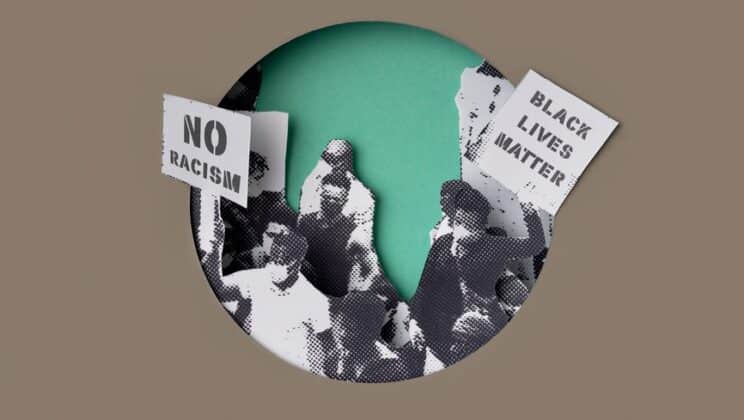Self-Care for DEIB Leaders
September 6, 2023
The murder of George Floyd put a long-overdue spotlight on racial injustice in the United States. Many Americans reacted with a surge of support for diversity, equity, inclusion, and belonging (DEIB) programs and policies, and companies created new DEIB leadership positions, councils, and committees faster than ever before. According to the Society for Human Resource Management, the number of DEIB roles increased by 55 percent in 2020 alone.
But since this spike, both momentum and morale have waned. DEIB funding has dropped and we continue to see difficult headlines about discrimination, layoffs, education bans, and harmful rulings happening across our judicial system, even from the Supreme Court. With so much changing every day, it’s no wonder the uphill battle can feel like too much to handle for those leading DEIB in the workplace. People are leaving these company roles faster than ever—at a rate almost 10 percent higher than non-DEIB roles.
It’s time to address the impact that working in these spaces has on our mental health. This work is critical, and it matters. You matter. But to sustain this work and mental health, DEIB leaders must take care of themselves. The emotional load is heavy and the road is long—we need endurance to persist. We need you to stay in the fight, and you can’t do that if you aren’t taking care of yourself.
The emotional load of DEIB
While the significance of this work can be understated, it should never be. DEIB leaders help people feel supported, advocated for, and safe to show up authentically in their own work. Righting the wrongs of society in this way truly makes a difference.
But, leading the charge isn’t easy. The path is filled with stress, complexity, pushback, and headlines that will break your heart. When a vision for a better, safer, and more equitable workplace is not fully supported, it can leave you feeling disheartened and isolated in your efforts. It can leave DEIB leaders fearing that the companies they work for are more interested in performative advocacy than long-term allyship and systemic change.
For many of us, this work is deeply personal. Often, we belong to the communities we’re fighting for. We embody the identities we’re working to protect. Sometimes, this is a primary motivator for continuing the work. It can be a powerful mission or calling and feel like more than “just a job.” But, this also comes with downsides. When what you do is so closely tied to who you are, separating work and life can be tough. It’s hard to “turn off” or step back at the end of a workday. We’re more likely to take professional setbacks personally because oftentimes, they really are.
This overlap can also create significant emotional distress. When political, cultural, or workplace difficulties arise, they feel like an attack—not only on what you do, but also on who you are. And, even if your identities aren’t as wrapped up in the work, it’s still a heavy load to bear. Any work that requires someone to face inequities and disrupt the status quo is hard, draining work. Caring for yourself is critical.
Self-care is an essential practice for everyone. Filling our tanks allows us to stress less, take perspective, and embrace joyful moments. If DEIB leaders want to commit to effective, enduring advocacy work, self-care has to be part of the strategy. Find a few things that work for you, and commit to weaving them into your work life. Below are a few I’ve found most helpful.
Self-care strategies for DEIB leaders
1. Remember your “why”
In the midst of unpredictable headlines, ongoing threats, and uncertainty, it’s only natural to feel defeated, burnt out, and aimless at times. However, don’t forget you started this work for a reason. What is the group of people, mission, or purpose that keeps you going? That’s your “why.” Don’t ever lose it. Take time to write it down and leave it somewhere you will see it often. Remembering your why is a powerful motivator, giving you endurance and perseverance along this journey. When you feel lost, make time in your week for work that directly relates to your why. It’ll remind you why you started and why you want to keep going.
2. Accept what’s in your control, and grieve what’s not
Say it with me—I can’t solve every problem. When emotions are high, we want to swoop in and fix everything, but we can’t. It’s OK to grieve what’s not within your control. Accepting the hard emotions that pop up when things feel impossible doesn’t mean you’re letting them defeat you. It just means you’re able to hold space for two things to be true at the same time—we have a long way to go, but we can still make progress.
Try redirecting to what’s within your control. Identify what you can do in the space you’re in with the tools and skills you have right now. Make sure the goals you set for yourself, your team, and your organization are realistic. Lofty, broad goals like “ending racism” or “eliminating discrimination at work” are difficult to measure and impossible to achieve alone. SMART (specific, measurable, attainable, realistic, and time-bound) goals will help you make progress toward the bigger goals.
3. Celebrate the needle moves
While embracing your limitations might feel like you’re admitting weakness, it’s really just accepting reality. You are not superhuman. No one can be all things to all people all the time. This isn’t meant to make you feel shame or pressure. Allow it to give you freedom and permission instead.
Progress is progress, no matter how small. Let the seemingly small needle moves encourage you. They don’t have to be groundbreaking to be celebrated. Even a collection of these moves can begin to shift workplace culture and result in safer, healthier work environments. Remember that although we aren’t where we might want to be as a society, we're not where we used to be either. This work didn’t start with us, and it won’t end with us and our generation. We can choose to focus on our sphere of influence and the needle moves we can make in our lifetime, one day at a time.
4. Change the subject
A lot of DEIB topics are heavy. It’s draining, difficult, and downright discouraging to talk about the harder parts of this work all day, every day. Remember that you have power and agency to end a conversation that feels draining or upsetting. You can prioritize your stress levels over someone’s request for your professional insight or opinion. You don't need to offer those things simply because people want or expect you to. If you do not have the mental capacity to educate other people or consume any more content about DEIB-related topics at that moment, then don’t. You can change the subject.
Try saying things like, “I’d rather not discuss this topic right now” or “There's actually a lot of helpful articles online about this topic you might be interested in.” Changing the subject can also look like taking a break from social media and commentary, or choosing not to discuss these topics outside of work. This may sound simple, but it can go a long way to helping preserve your energy for the situations that require your professional skills and insights.
5. Metabolize the stress
Chronic stress can harm our mental, physical, and emotional health more than most people realize. Regular exercise can help your body process the stress hormones that sometimes accompany this work. Move your body in whatever ways are joyful, realistic, and feasible for you. For some, that may be taking a quick walk, stretching in your chair, or shaking your body out after a difficult meeting. For others, it could be exercise classes, trips to the gym, or playing in the yard with their kids. What’s most important is that you find options that motivate you to move consistently. It's the consistency that combats the negative impacts of chronic stress, lowering your risk of things like heart disease, respiratory illnesses, and hypertension.
6. Rest intentionally
You must rest and refuel for the journey ahead. Purposeful rhythms of rest are a human right, not something you earn after hitting intolerable levels of exhaustion and burnout. You never need to apologize for or justify your need to rest.
Maintaining your mental health while working in DEIB might mean shifting boundaries and prioritizing activities that reduce your risk of burnout. This work can expose you to some of the darker, harder aspects of human life. In order to stay engaged, intentional recharge and refuel are critical. In the words of author Tricia Hersey, “We must lighten our loads. Survival is not the end goal for liberation. We must thrive. We must rest.”
The goal of DEIB should be to promote safety and liberation in a way that leaves all people with the possibility to thrive. That includes you. Moving from surviving to thriving can happen in many ways, but can often look like healthier sleep routines, disconnecting from media, sitting in silence, eating nutritiously, time away from work, and more.
Resting and refueling can also happen socially. Spend some intentional time with people you know and feel good around. Seek spaces where you aren’t the only person like you in the room. These are people you don't have to explain things to, educate, or perform for. You can just be.
7. Know your limits
Ideally, rest and self-care will happen consistently. But in times of unusually high stress, where it doesn’t feel possible, you still need to step back and know your limits. Note the signs that it might be time to slow down and prioritize rest and care:
- You’re feeling irritable. Interactions, requests, or projects that normally feel tolerable now feel like a nuisance.
- It’s hard to focus. It’s normal to get distracted during the day, but if you find yourself becoming inattentive, forgetful, or mentally checked out more than usual, this might be a sign to refuel.
- Your body is fatigued. You’re feeling more achy or tired than usual. This can include tension, unexplained body aches, or lower energy levels.
- Motivation is low. This is hard, personal work. If you’re having a hard time feeling motivated in your purpose, this is also a sign to slow down and zoom out.
- Because you feel like it. You don’t need any reason or justification to rest.
8. Seek support
Be attuned to the signs that you may need to seek professional support. Those could include times when your:
- emotions, behaviors, or physical health have strayed from your “baseline”
- usual coping skills are no longer working
- relationships, work, or daily routines are impacted
- motivation to make changes is gone
There are so many types of support. You can find support in family, friends, your community, or co-workers. Disrupting systemic oppression and historical exclusion is difficult work. You can’t go at it alone. For long-term and impactful DEIB efforts to take place, everyone must do their part—not just those with DEIB in their job title. With that in mind, feel empowered to delegate and distribute. Avoiding working in silos can help take some of the pressure and isolation off of your plate.
Maintaining your mental health while working in this space means working as though everyone has a responsibility to learn and grow to support other groups. We all have and lack privilege and cannot be experts on everything all the time. As such, you have the right to establish boundaries at work about what falls within your job scope. Consultation with other DEIB leaders or general co-workers can also be helpful to reduce pressure to know all things about all areas of diversity and inclusion.
For those seeking to support DEIB leaders:
Understand that every day at work for them is activism. Get in the fight with them, don’t make them fight alone. Don’t use them or their department as a “catch all” for all things different or diverse. Take responsibility for your own education and respect the boundaries they establish for their role. Check in about their workload and explicitly ask what support looks like for them.
Make self-care a priority.
You can get started today if your employer offers Lyra.
Author
Andrea Holman, PhD
Program Manager, Workforce Transformation
Dr. Holman is a DEI&B program manager on the workforce transformation team at Lyra Health. Previously, she served as a tenured associate professor of psychology at Huston-Tillotson University. She served as co-chair of the health and wellness working group for the city of Austin's task force on Institutional Racism & Systemic Inequities and now works as a leader in the nonprofit Central Texas Collective for Race Equity that resulted from the task force. She has conducted research on understanding the psychological experience of African Americans and racial advocacy from the perspective of Black and Latinx Americans. She has contributed to articles (including publications in The Counseling Psychologist and Harvard Business Review), book chapters, national conference presentations, virtual seminars, workshops, and a number of podcasts on these subjects.
Explore additional blogs

DEIB
Debunking Misconceptions About Black Mental Health

DEIB
How Employers Can Support Diverse Women’s Identities and Mental Health Needs

DEIB